A uniform rod of length L and mass M is lying on a frictionless horizontal plane and is pivoted at one of its ends as shown in Fig. There is no friction at the pivot. An inelastic ball of mass m is fixed with the rod at a distance L/3 from O. A horizontal impulse J is given to the rod at a distance 2L/3 from O in a direction perpendicular to the rod. Assume that the ball remains in contact with the rod after the collision and impulse J acts for a small time interval △t. Now answer the following questions:
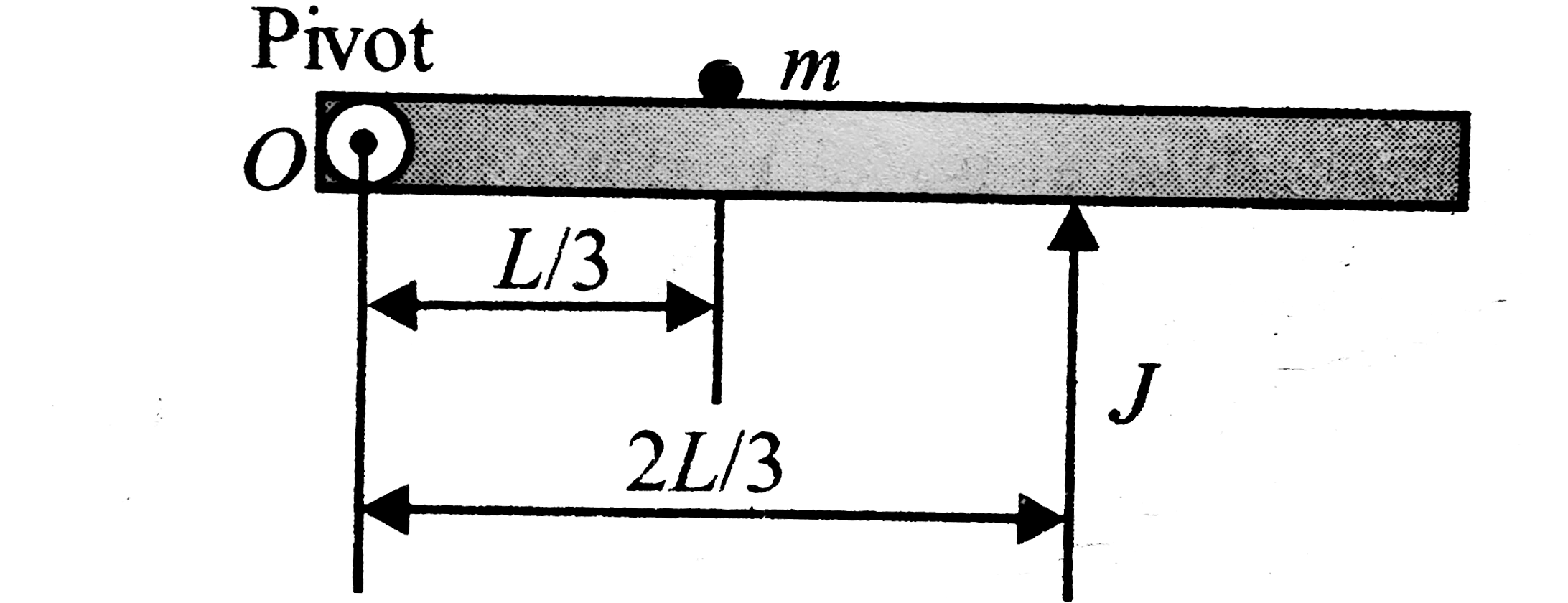
Find the resulting instantaneous angular velocity of the rod after the impulse.
3J(m+3M)L
6J(m+3M)L
3J(3m+M)L
6J(3m+M)L
The correct Answer is:B
Let the system starts with agular velocity ω. Angular velocity if the ball will also be ω as it remais struck to the rod.
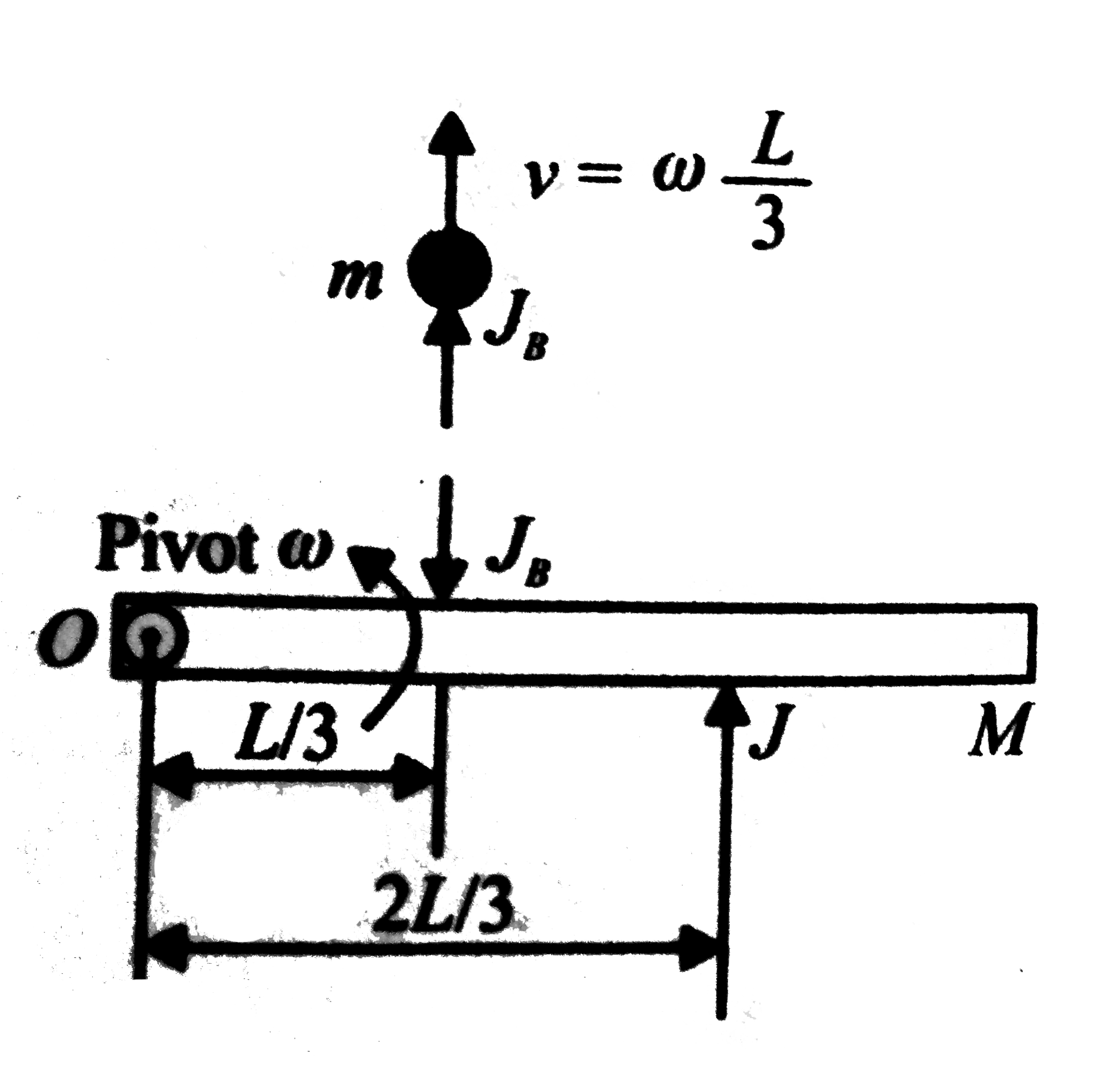
Velocity of the ball v=ωL3
For the rod angular impulse= change in angular momentum:
J2L3−JbL3=ML23ω.....i
For the ball, impulse = change in linear momentum
Jb=mv=mω(L3)......ii
From eqn i and ii ω=6J(m+3M)L
and Jb=2mJ(m+3M)
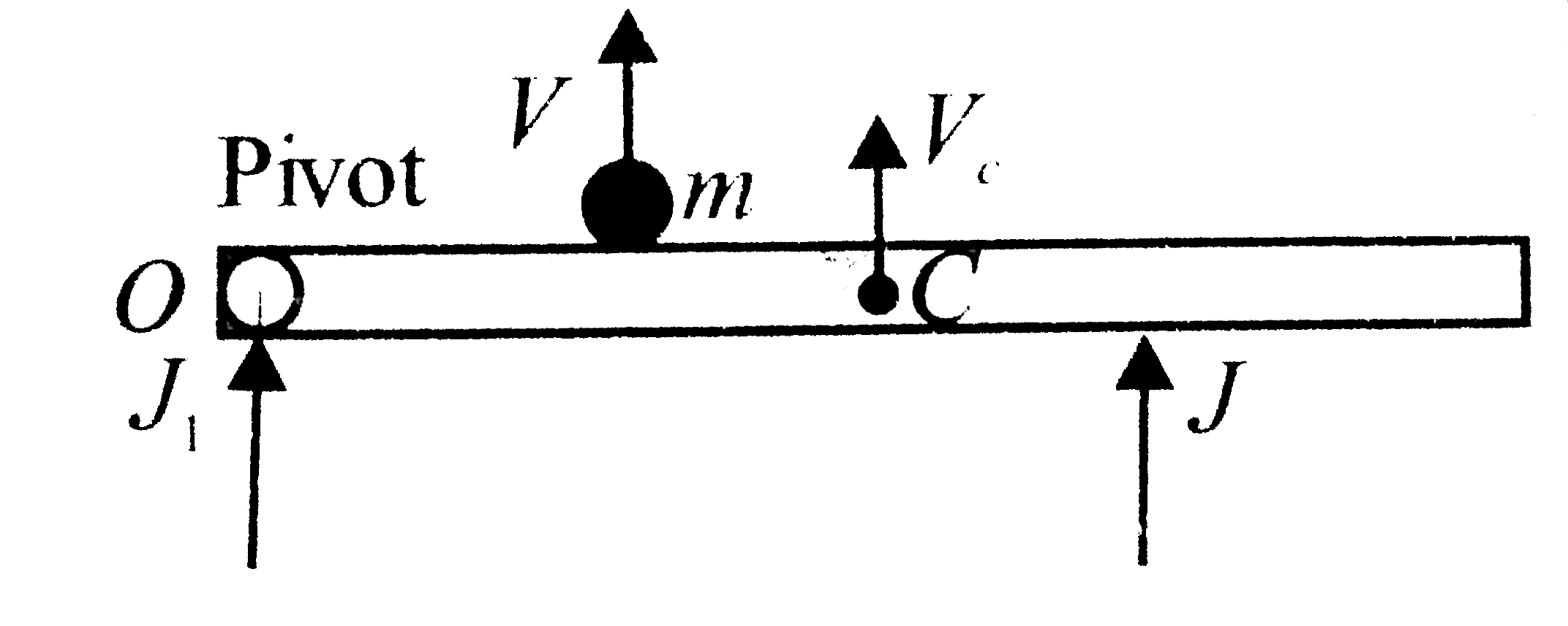
Let impulse on the pivot be J1
For the rod and ball system total impulse = change in linear
mometum J+J=Mvc+mv
Solve to get J1=mJm+3M
Topper's Solved these Questions
- RIGID BODY DYNAMICS 1Book:CENGAGE PHYSICSChapter:RIGID BODY DYNAMICS 1Exercise:Integer
Explore 11 Videos
- RIGID BODY DYNAMICS 1Book:CENGAGE PHYSICSChapter:RIGID BODY DYNAMICS 1Exercise:Multiple Correct
Explore 9 Videos
- PROPERTIES OF SOLIDS AND FLUIDSBook:CENGAGE PHYSICSChapter:PROPERTIES OF SOLIDS AND FLUIDSExercise:INTEGER_TYPE
Explore 2 Videos
- RIGID BODY DYNAMICS 2Book:CENGAGE PHYSICSChapter:RIGID BODY DYNAMICS 2Exercise:Interger
Explore 2 Videos
Similar Questions
A uniform rod of length L and mass M, is lying on a frictionless horizontal plane and is pivoted at one of its ends, as shown in the figure. An inelastic ball of mass m is fixed with the rod at a distance L/3 from O. A horizontal impulse J is given to the rod at a distance 2L/3 from O in a direction perpendicular to the rod. Assume that the ball remains in contact with the rod after the collision and the impulse J acts for a small time interval Δt.
(a) Find with resulting instantaneous angular velocity of the rod just after the impusle is imparted.
(b) Find the impulse acted on the ball during the time interval Δt.
(c ) Find the magnitude and direction of the impulse applied by the pivot during the time interval Δt.

View SolutionA uniform rod of mass m and length l is lying on a smooth table. An impulse J acts on the rod momentarily as shown in figure at point R. Just after that:
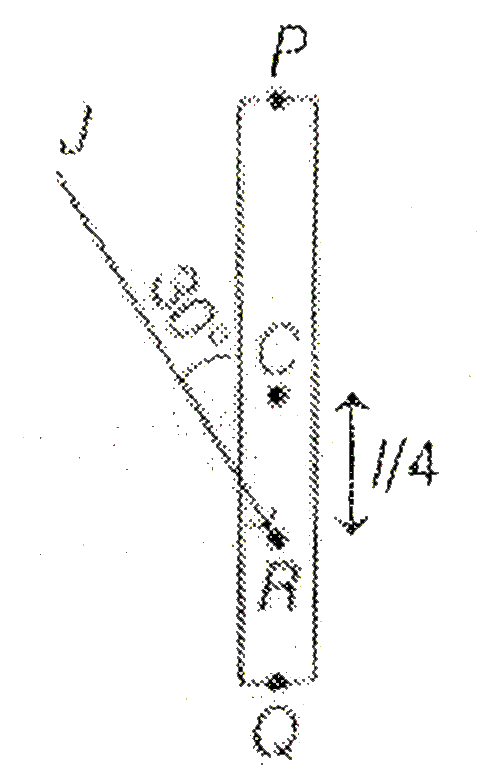
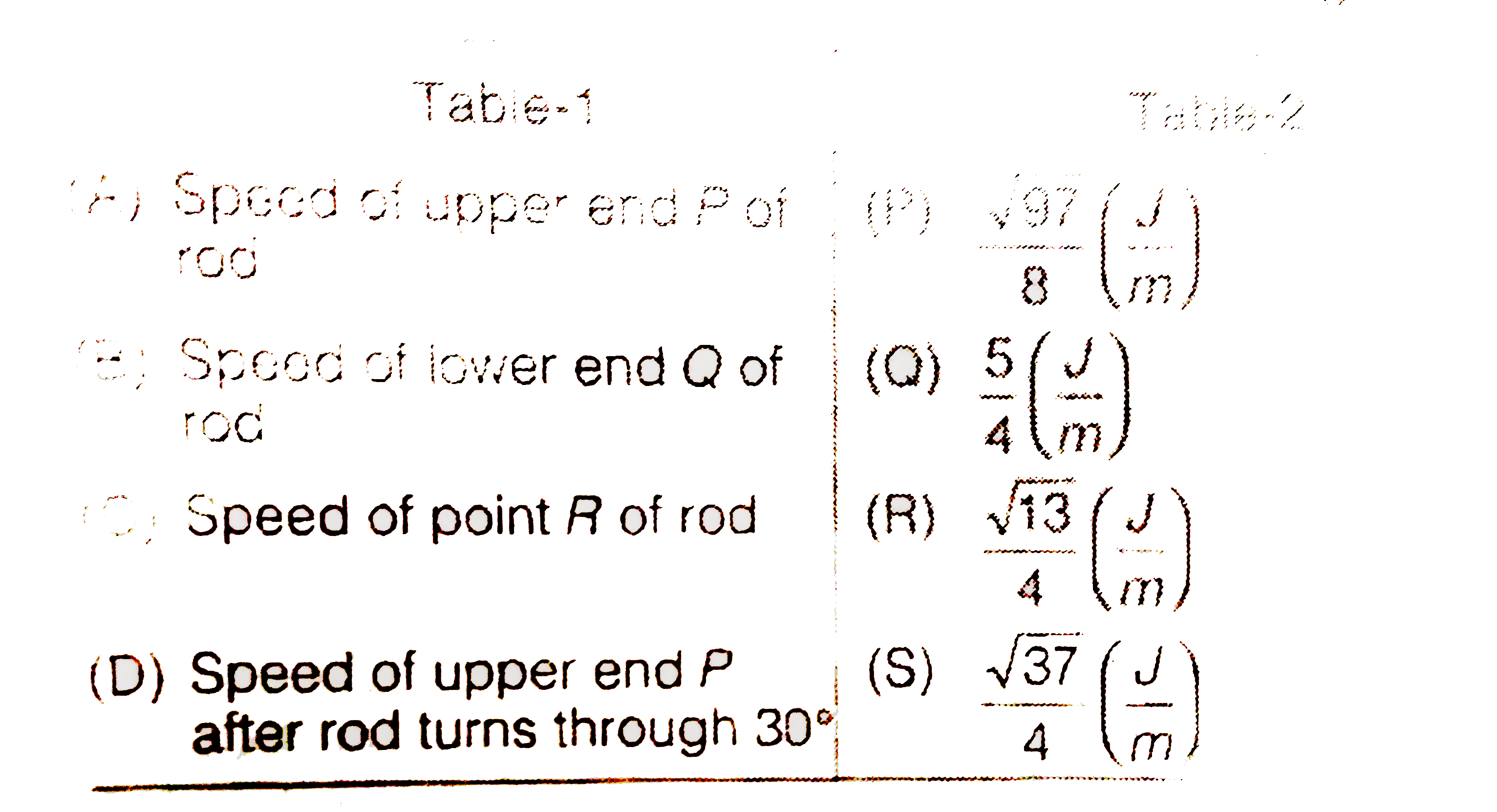
View Solution
Knowledge Check
A uniform rod of length L and mass M is lying on a frictionless horizontal plane and is pivoted at one of its ends as shown in Fig. There is no friction at the pivot. An inelastic ball of mass m is fixed with the rod at a distance L/3 from O. A horizontal impulse J is given to the rod at a distance 2L/3 from O in a direction perpendicular to the rod. Assume that the ball remains in contact with the rod after the collision and impulse J acts for a small time interval △t. Now answer the following questions:
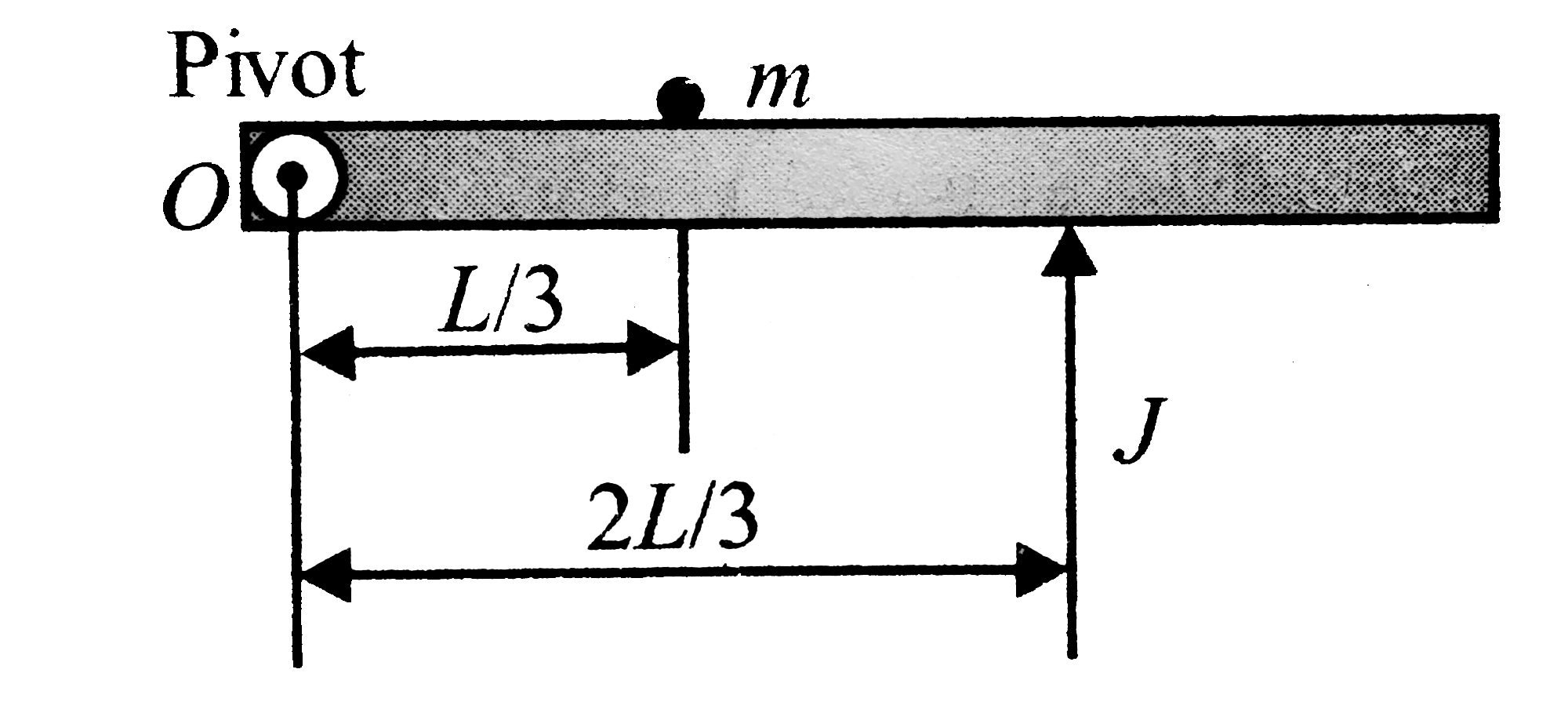
Find the impulse acted on the ball during the time △tA2MJ(3m+M)B2MJ(m+3M)C2mJ(3m+M)D2mJ(m+3M)A uniform rod of length L and mass M is lying on a frictionless horizontal plane and is pivoted at one of its ends as shown in Fig. There is no friction at the pivot. An inelastic ball of mass m is fixed with the rod at a distance L/3 from O. A horizontal impulse J is given to the rod at a distance 2L/3 from O in a direction perpendicular to the rod. Assume that the ball remains in contact with the rod after the collision and impulse J acts for a small time interval △t. Now answer the following questions:
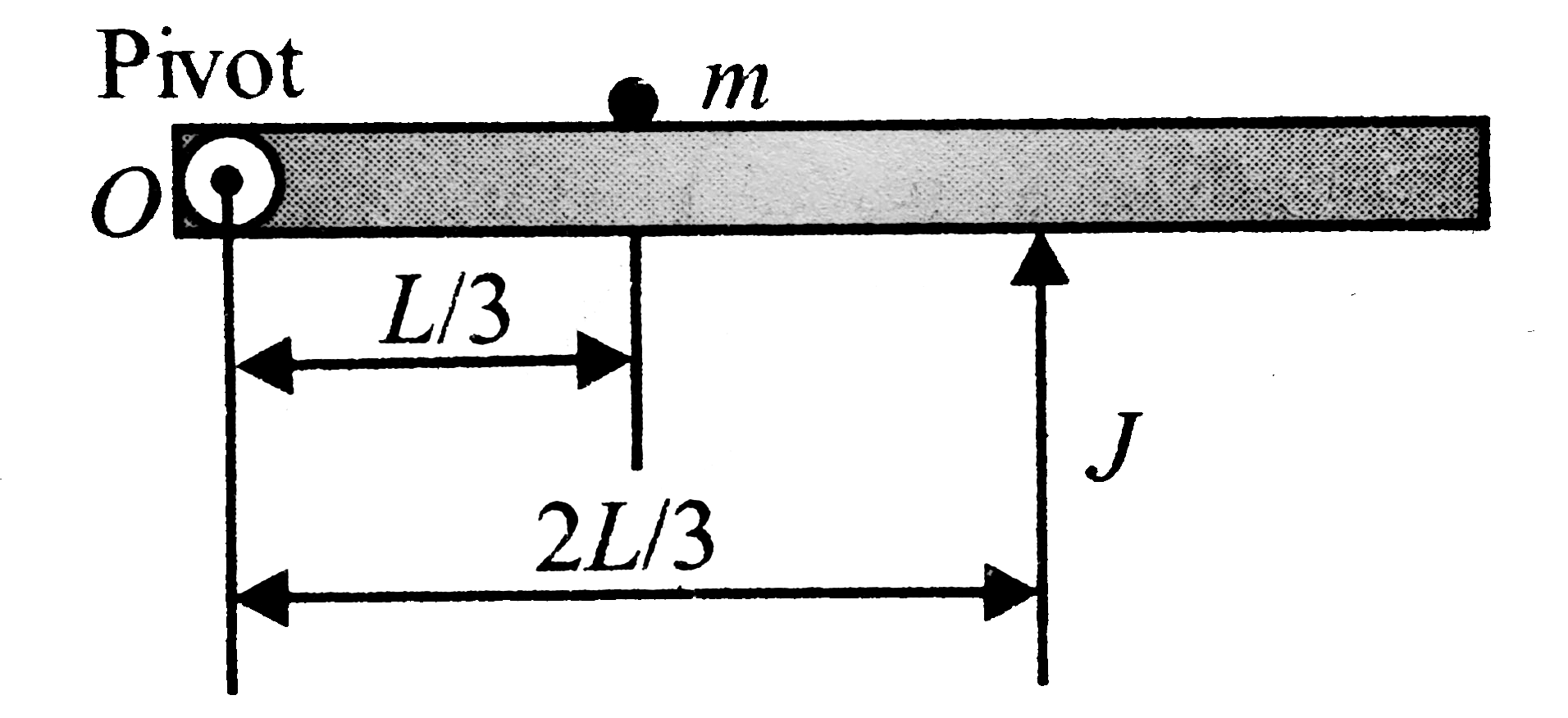
Find the magnitude of the impulse applied by the during the time interval △tAmJ(m+3M)BmJ(3m+M)CMJ(m+3M)DMJ(3m+M)A uniform thin rod of length 2L and mass m lies on a horizontal table. A horizontal impulse J is given to the rod at one red. There is no friction. The total kinetic energy of the rod just after the impulse will be
AJ22mBJ2mC2J2mD6J2m
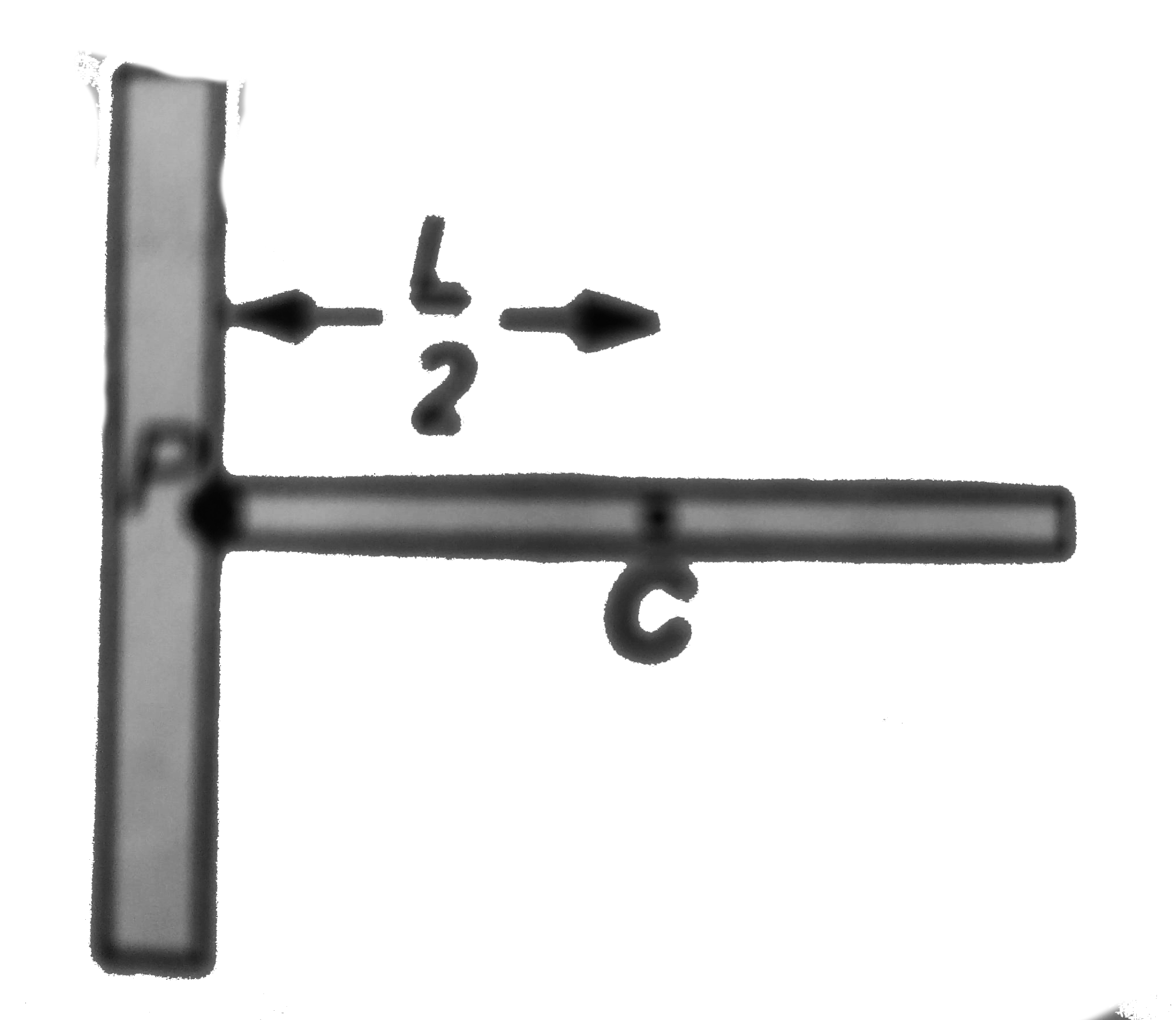
A uniform rod of length L and mass m is free to rotate about a frictionless pivot at one end as shown in figure. The rod is held at rest in the horizontal position and a coin of mass m is placed at the free end. Now the rod is released The reaction on the coin immediately after the rod starts falling is
View SolutionA uniform rod OA of mass M and length 2a rests on a smooth table and is free to turn about a smooth pivot at its end O, in contact with it at a distance b from O is an inelastic particle of mass m, a horizontal blow of impulse p is given to rod at a distance x from O in a direction perpendicular to the rod. The resultant intantaneous angular velocity of the rod is
View SolutionA uniform rod of length 3L and mass m is suspended from a horizontal roof by two strings of length L and 2L as shown. Then the tension in the left string of length L is :
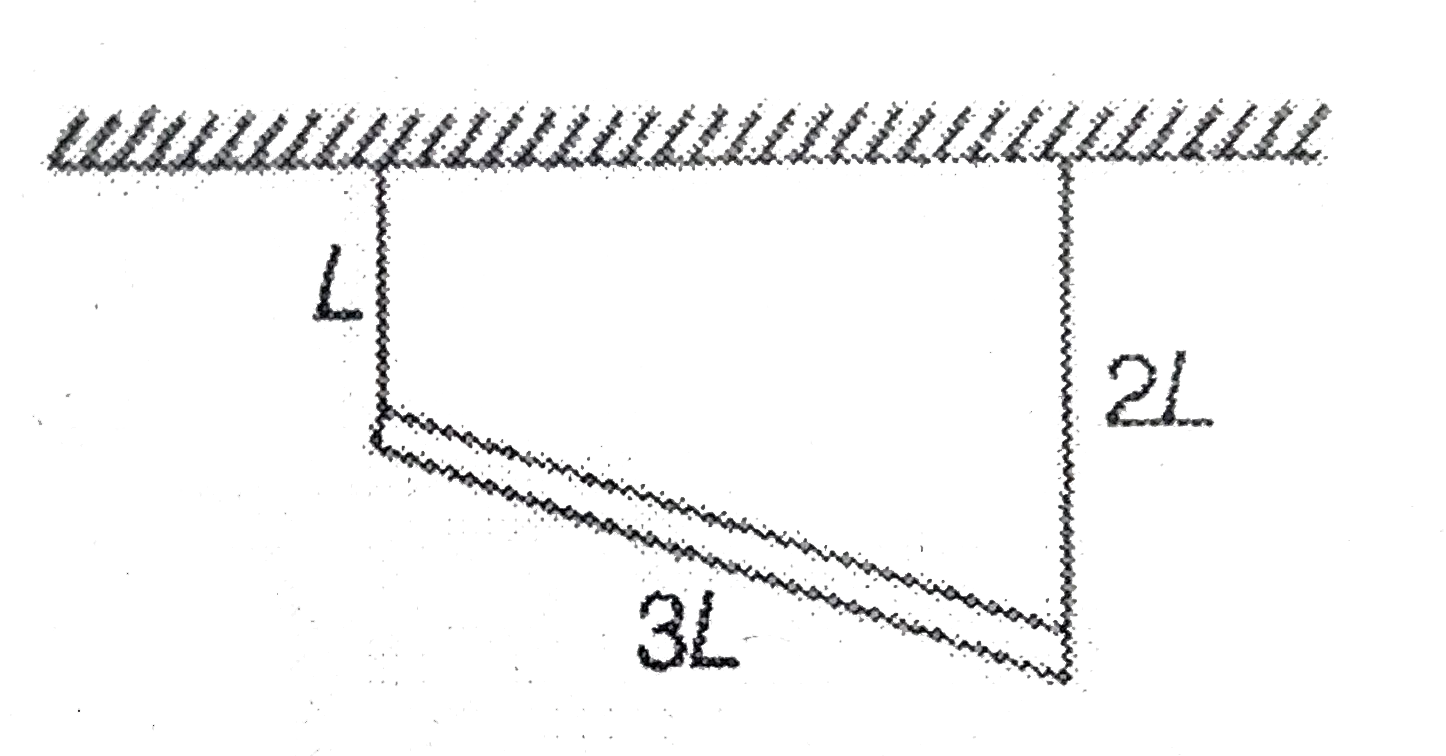
View SolutionA uniform thin rod of length l and mass m is hinged at a distance l/4 from one of the end and released from horizontal position as shown in Fig. The angular velocity of the rod as it passes the vertical position is

View SolutionA rod of mass m and length l is lying on a horizontal table. Work done in making it stand on one end will be
View Solution

